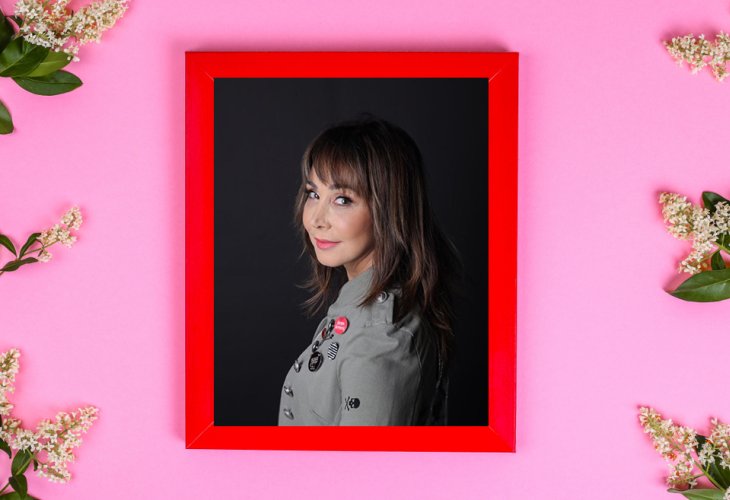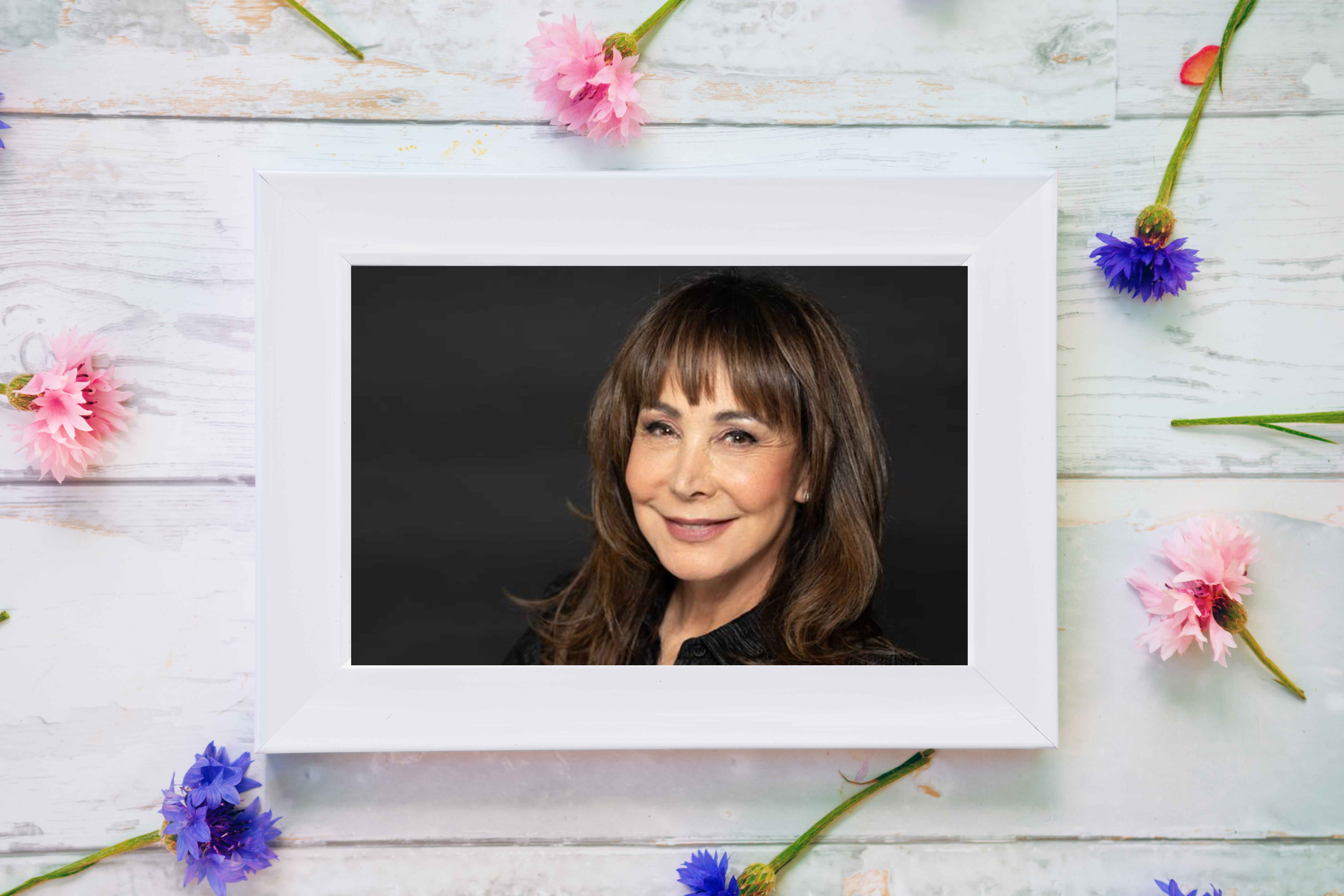Chani Nachmias: "I've Lost Faith in Coexistence"
Residing near Kaplan Street, Chani recalls the charged days of protests before the war. Once a believer in coexistence, she feels a significant change within her and mourns the division in Israel, which only the war seemed to unite.
 Chani Nachmias (Photo: Fabrice Bitton)
Chani Nachmias (Photo: Fabrice Bitton)In these painful times, Chani Nachmias, actress and children’s star, living in Tel Aviv across from Kaplan Street, vividly remembers the days of another major conflict that unfolded there not long ago. Before the Simchat Torah disaster and the current war, the time was marked by a prolonged struggle between right and left, and difficult protests held every evening. "It was not an easy period for me, it was a terrible tear in our people," Nachmias says with pain. "There were days when I mixed in, and mostly days when we fled before it began and returned after 11 PM, because otherwise, it was impossible to enter here, it was like a siege area."
"The behavior disturbed me. We must not forget we are a country where a prime minister was assassinated, and not by a terrorist but by a Jew. Polarization is disastrous, and our enemies noticed this divide and assumed our forces were too fractured to fight back, which led to the outbreak of conflict. I said in an interview, regarding the division when draft resistance was in the air, that I had no doubt that if and when they were called to the flag, there would be no hesitation. And that is indeed what happened."
Where did the Simchat Torah disaster find you?
"In my small home in Tel Aviv, I didn’t even hear the Shabbat morning siren. My friend Irit Anavi told me, 'Chani, it’s war, a terrible war.' It dawned on me slowly as I started hearing people crying out on TV interviews, 'Where is the army?' and 'They kidnapped my father, and I see images of him on the way to Gaza.' Two days earlier, I had a performance at the 'Habima,' named 'Spanish Orchard.' I was supposed to have a show on the day the war broke out, but I didn’t even call to see if it was canceled, and they didn’t call to inform me either. It was clear to all of us that something significant had happened, that the world had stopped."
Chani describes how the disaster also personally hit her with painful intensity, on a family level: "My sister-in-law's granddaughter was murdered in Nachal Oz. She was a soldier serving as a paramedic, from Kibbutz Be'eri herself, and all her sister’s family and the grandmother are from Magen and they were in the shelters for 26 hours until they were rescued through the shelter windows by tanks. During her shiva, I heard the terrible stories, of burnt settlements and the bodies laying there. These were images described to me, almost 'live' as I met the survivors two or three days after it happened, hearing firsthand testimonies. It was a very hard experience."
Many voices say this disaster and the subsequent war changed us, that each of us became somewhat different. Do you feel this change in you too?
"I saw an interview with author David Grossman, a man of peace and a pronounced leftist. The reporter asked him if his faith in coexistence had shattered, and he said, 'No, it hasn't shattered, but it suffered a severe blow. You know what, even a critical one.' For me, it's a step beyond critical, I no longer see coexistence. In the past, I did, I really hoped. I'll tell you more, I once attended a joint Israeli-Palestinian Memorial Day to see it firsthand, to see people from both places who lost loved ones. One lost a child who threw stones, the other lost a sister in a restaurant where a suicide bomber detonated, which is manifest mourning on both sides, coming to mourn together and stand together in a moment of silence. There doesn’t get to be a bigger coexistence than that. But I don't see myself going to such places anymore, not even out of curiosity, I'm already quite suspicious, and not solely towards Arab Israelis. Recently, just across the border, in Jordan, a country supposedly at peace with us, a shawarma restaurant named 'October 7' opened..."
"I think we've been awakened in many ways since the Simchat Torah disaster, not just coexistence. Had this disaster not happened, our soldiers wouldn’t have gone into Gaza, proving how much the deterrence power returned. Only now, with so many casualties, do we comprehend that all these years they've been fortifying and arming. They’ve fed their children hatred, and they see no way to coexist with us."
 (Photo: Rami Zranger)
(Photo: Rami Zranger)How did this disaster affect your faith?
"There was some arrogance here. The belief that this fence was impenetrable, and female observers saying they saw things and were silenced, masculine ego, complacency that should never happen in our living places. I’m currently performing in a musical at Beit Lessin, and in one of my monologues, I tell a student that 'it’s our fate to live by the sword.' This play was written in the 70s, not now, yet its relevance is painful and frightening."
"I don’t feel it affected my faith. During the Holocaust, people starved and still fasted on Yom Kippur. I do not have lesser belief in Hashem, in the chosen people. I haven’t lost my faith. I didn’t stop lighting candles or making *kiddush*, it didn’t throw me off everything I was raised on and grew up with."
"I come from a traditional secular family but heavily reliant on many commandments; my father recited *kiddush* every Friday. I firmly believe and fast on Yom Kippur since I was 12, and attend synagogue on holidays. I could fast and watch TV, but my partner, singer Yehuda Elias, is from a slightly more observant home than mine, and when he does *kiddush* and breaks *challah* for *hamotzi*, his ceremony is broader than what I was accustomed to. Last Yom Kippur, we fasted without television, and that was significant."
Amid all the pain, Nachmias conveys a strong statement of unity that shouldn't fade in the post-war days: "I think the army is a reflection of Israeli society, the diversity of its fighters serving side by side. Even during the warfare, when talking about the fallen soldiers, we see they come from all spectrums of Israeli society: people from cities with a more religious nature and more secular cities. We see those wearing kippahs, entirely secular people, and Haredim. There is no politics and differing opinions; there is a Jewish and Israeli state, soldiers fighting for their home. There’s something in this togetherness so powerful that it should be our distinct sign. We must not separate in any form once this fighting ends."
Chani Nachmias's interview featured on Moran Kurs’s show "Not Taken for Granted." The full interview will air soon.

